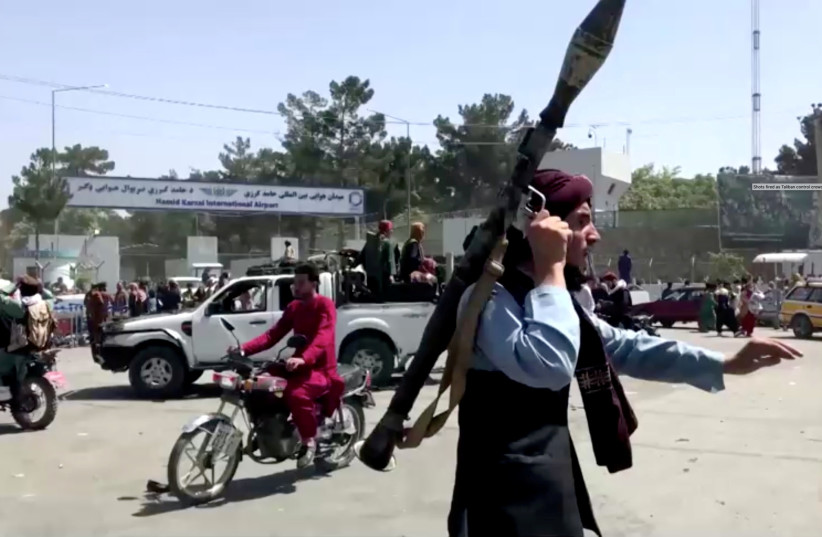The top UN human rights official Michelle Bachelet said on Tuesday that she had received credible reports of serious violations committed by the Taliban in Afghanistan, including summary executions of civilians and restrictions on women and on protests against their rule.
Bachelet urged the UN Human Rights Council, holding an emergency session at the request of Pakistan and the Organisation of Islamic Cooperation (OIC), to set up a mechanism to closely monitor Taliban actions.
"A fundamental red line will be the Taliban's treatment of women and girls," she told the Geneva forum.

"There are grave fears for women, for journalists, and for the new generation of civil society leaders who have emerged in the past years," Bachelet told the forum's emergency session, held at the request of Pakistan and the Organisation of Islamic Cooperation (OIC).
"Afghanistan’s diverse ethnic and religious minorities are also at risk of violence and repression, given previous patterns of serious violations under Taliban rule and reports of killings and targeted attacks in recent months," she said.
Nasir Ahmad Andisha, a senior Afghan diplomat from the deposed government, called for accountability for Taliban actions, describing an "uncertain and dire" situation where millions of people fear for their lives.
Independent UN human rights experts, in a joint statement, said that many people were in hiding fearing reprisals as "the Taliban continues to search homes door-to-door."
"Searches, arrests, harassment, and intimidation, as well as seizures of property and reprisals, are already being reported,” they said.
The council will consider a draft resolution, submitted by Pakistan on behalf of the Organisation of Islamic Cooperation (OIC), that voices concern at reports of violations.
But it does not mention the Taliban by name, nor would it set up a fact-finding mission to probe them.
Instead, it calls on Bachelet to report back to the forum at its March 2022 session and urges all parties to respect human rights law including "the full and meaningful participation of women" and of minorities.
"We were hoping for a stronger text, it is extremely minimalist and we are disappointed," a Western diplomat told Reuters as heated negotiations continued on the text.
Addressing an emergency session of the UN Human Rights Council in Geneva, Ambassador Nasir Ahmad Andisha also called for the creation of a broad-based government that includes all of the country's ethnic groups and female representatives.
Following these reports, China's envoy to the UN in Geneva said on Tuesday that the US army and the militaries of other coalition partners should be held accountable for alleged rights violations they committed in Afghanistan.
"The US, UK, Australia, and other countries must be held accountable for the violation of human rights committed by their military in Afghanistan and the evolution of this current session should cover this issue," China's ambassador Chen Xu told an emergency session of the Human Rights Council on Afghanistan.
"Under the banner of democracy and human rights the US and other countries carry out military interventions in other sovereign states and impose their own model on countries with vastly different history and culture," he said, saying this brought "great suffering."
